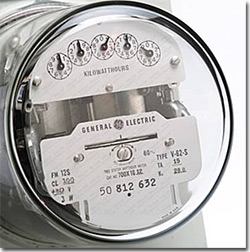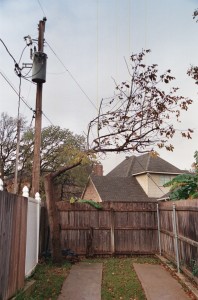Virginia Bowers was once in love, but not anymore. Her paramour was her company, Southwestern Bell, where she worked as a manager for almost three decades. The company helped her raise three children as a single mom.
“I was enamored with the security,” she says.
No more. Dealing with her old Southwestern Bell, now flying under the AT&T flag after Southwestern purchased AT&T in 2005, is like wrangling with an ex-spouse, she says.
“Every call with them is frustrating,” she says about her customer service experiences. On one recent call, she confesses regretfully, “I ended that phone call screaming at the man.”
As readers of The Dallas Morning News Dave Lieber Watchdog column first learned, Bowers’ breakup started eight months ago. Bowers gets a letter from AT&T telling her she needs to upgrade her service. Well, that’s not how AT&T puts it. AT&T writes that it is “proactively transitioning some customers who live in your area to the advanced AT&T U-verse network with fiber-optic technology.”
Bowers already has a sweet deal for Internet service: DSL cable for $19.99 a month — for life. The letter, though, promises, “The change is free.”
She calls to ask the new monthly price. She learns it’s even lower — $15 a month. She asks several times if that’s the true price. A few days later, she calls again and talks to someone else. She double- checks the price one more time. Everyone assures her: $15 a month.
A sweeter deal, so she gives the OK. Her Internet service is disconnected. The company installs a new modem setup. For the first months, her bill is the promised $15.
Then Bowers gets another letter. The company regrets that it must share bad news. An audit shows that she has been charged the wrong amount. She’s paying the active managers’ rate when she should pay the retired managers’ rate. Her new rate is higher. Forty dollars a month. A jump from $15 to $40 — a 167 percent increase.
She protests. AT&T gives her a $30 credit. That’s the equivalent of an air kiss. Bowers is out $300 a year in extra charges. Even if she wants to go back to her old DSL service, the company says she can’t.
“Does this sound like entrapment or bait and switch to you?” she asks The Watchdog.
Sounds like a potential case of deceptive advertising. The Texas Deceptive Trade Practices Act defines that as presenting a false statement about “the cost or character” of a product, service or financial security for sale.
AT&T calls it an unintentional error. The company caught the mistake. Now the correct price is being charged.
AT&T spokesman Dale Ingram says the company is treating Bowers fairly: “She had an active manager discount for almost a year. We didn’t go back and charge for that.”
He adds, “We’re applying the correct discount moving forward as a retired manager, and again, we have apologized.”
Sigh. Shouldn’t a promised price that is accepted by a customer stamp a deal as final? You’d think so, especially one involving a veteran former employee.
This is no surprise to AT&T critic John Spiller, who says AT&T employees sometimes struggle to present accurate facts to customers when making a sales pitch. Spiller wrote a 2011 tell-all book, The Ampersand Diaries: AT&T and Life Lessons Learned from the Trenches of an American Icon.
“They do the same thing to their employees, past or present, that they do to their customers,” he says. “Say one thing. Do another. Very, very common.”
Bowers actually faces two AT&T price increases. The bill for her AT&T cellphone went up 61 cents on May 1, as it did for millions of other customers. AT&T says the new charge will help cover company expenses.
– – – – – – – – – – – – – – – – – – – – – – – –
More Watchdog Nation News:
Watchdog Nation Partners with Mike Holmes
America meets Watchdog Nation/Listen to Fun Radio Interview
Watchdog Nation Debuts New e-Book and Multi-CD Audio Book
– – – – – – – – – – – – – – – – – – – – – – – –
It was “a move that could bring in more than a half-billion dollars in annual revenue to the telecom giant,”The Wall Street Journal reported. (Other phone companies charge similar administrative fees.)
Bowers has two obvious options. She can file a complaint with the Texas attorney general’s office, which examines claims of deceptive advertising. She can also file a small-claims court lawsuit against AT&T for $300 to cover her lost money for a year and other added expenses. She doesn’t need a lawyer for small claims. But she needs proof of the deception, preferably in writing, photos or recordings.
How sad that Bowers’ longtime affection for her former company has come to this. She speaks nostalgically of “the universal relationship” the phone company once had with its customers.
“They frittered it away,” she says.
Visit Watchdog Nation Headquarters
Like Watchdog Nation on Facebook
Watch Watchdog Nation on YouTube
Are you tired of fighting the bank, the credit card company, the electric company and the phone company? They can be worse than scammers the way they treat customers. A popular book, Dave Lieber’s Watchdog Nation: Bite Back When Businesses and Scammers Do You Wrong, shows you how to fight back — and win! The book is available at WatchdogNation.com as a hardcover, CD audio book, e-book and hey, what else do you need? The author is The Watchdog columnist for The Dallas Morning News. Visit our store. Now revised and expanded, the book won two national book awards for social change. Twitter @DaveLieber



















 Visit
Visit 


